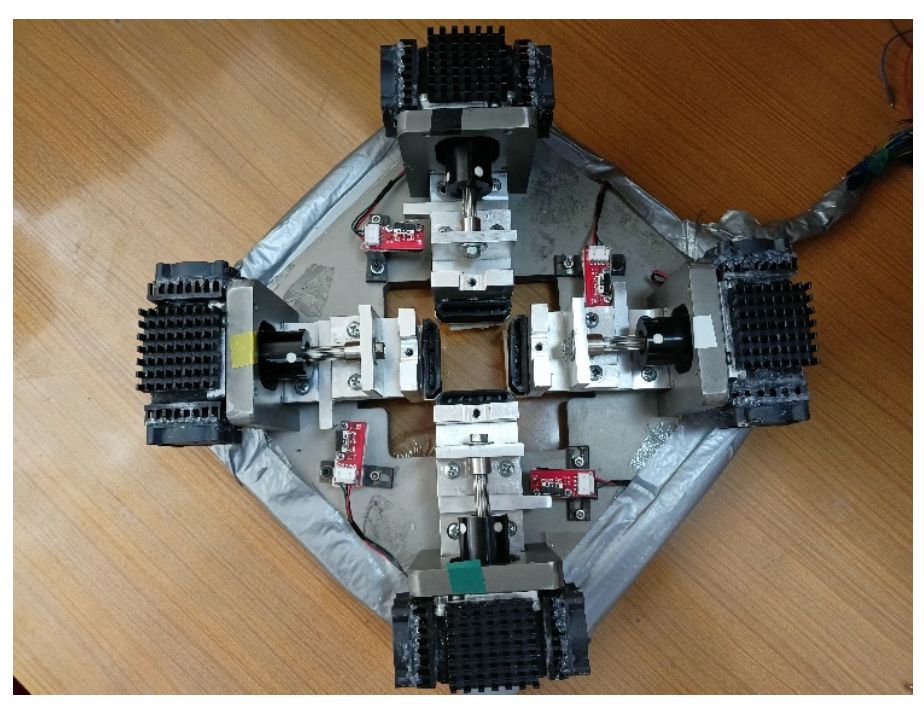Development of a Closed-Loop Strain Controlled Cell Stretching Device

Spotlight
funded by
Hacettepe University Scientific Research Projects Coordination Unit
PI:
Ismail Uyanik, PhD
Completed 17/04/2023 - 17/04/2025
Abstract
Tissues and organs are exposed to a wide range of biochemical mechanical signals during their functioning. Mechanical signals directly
affect many biological processes such as motility, apoptosis and differentiation, and can also trigger biochemical changes. The study of
the effects of these signals on the life cycles of tissues and cells, in short, mechanobiology, is only possible by transferring controlled
and measurable mechanical signals to cell cultures.
In this context, our project aims to develop a cell stretching device that can apply mechanical loading to cells in a controlled manner. The device to be developed will apply mechanical strain to cells seeded on a PDMS membrane in a controlled and measurable manner in the biaxial axis at its four corners. Thus, the mechanical interactions that cells encounter in the living body will be simulated and analyzed.
One of the most important unique values of the device to be developed is the ability to apply strain control in a closed-loop manner. Thanks to the soft special sensor systems to be produced within the project, the strain applied on the PDMS membrane will be measured in real time and online, and the tensile forces applied to the motors will be updated accordingly. In addition, with the help of an image processing-based auto-calibration membrane, device calibration can be easily performed offline.
When all these are combined, as a result of our project, a unique closed-loop strain-controlled cell tensioning device that can compete worldwide will be developed.
In this context, our project aims to develop a cell stretching device that can apply mechanical loading to cells in a controlled manner. The device to be developed will apply mechanical strain to cells seeded on a PDMS membrane in a controlled and measurable manner in the biaxial axis at its four corners. Thus, the mechanical interactions that cells encounter in the living body will be simulated and analyzed.
One of the most important unique values of the device to be developed is the ability to apply strain control in a closed-loop manner. Thanks to the soft special sensor systems to be produced within the project, the strain applied on the PDMS membrane will be measured in real time and online, and the tensile forces applied to the motors will be updated accordingly. In addition, with the help of an image processing-based auto-calibration membrane, device calibration can be easily performed offline.
When all these are combined, as a result of our project, a unique closed-loop strain-controlled cell tensioning device that can compete worldwide will be developed.
Other Research
All
Ongoing
Completed
Ongoing
|
01/11/2023
Completed
|
17/04/2023 - 17/04/2025
Completed
|
01/11/2022 - 01/04/2023
Completed
|
01/08/2022 - 01/08/2023
Completed
|
01/06/2022 - 01/08/2023
Completed
|
01/04/2021 - 01/04/2023
Completed
|
01/01/2020 - 15/04/2020



